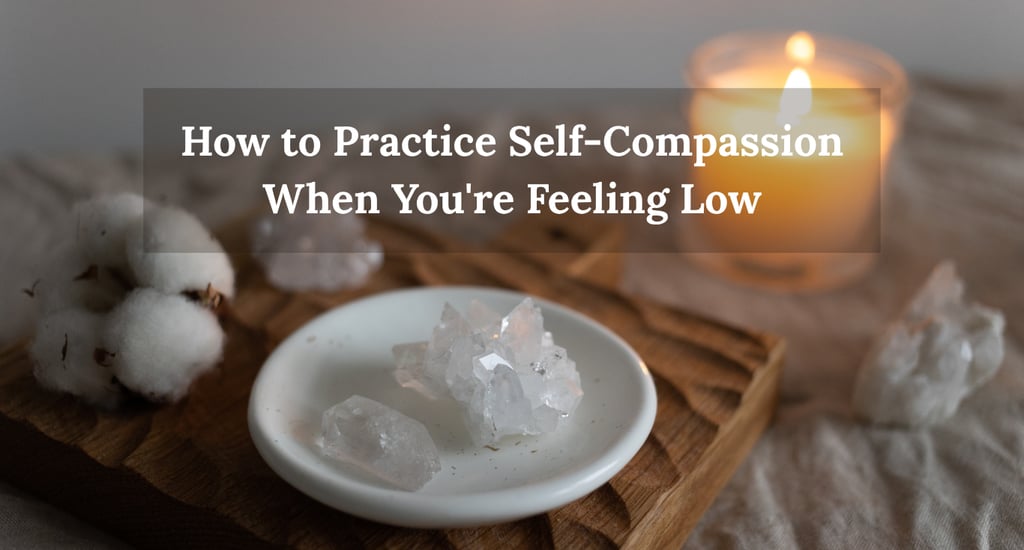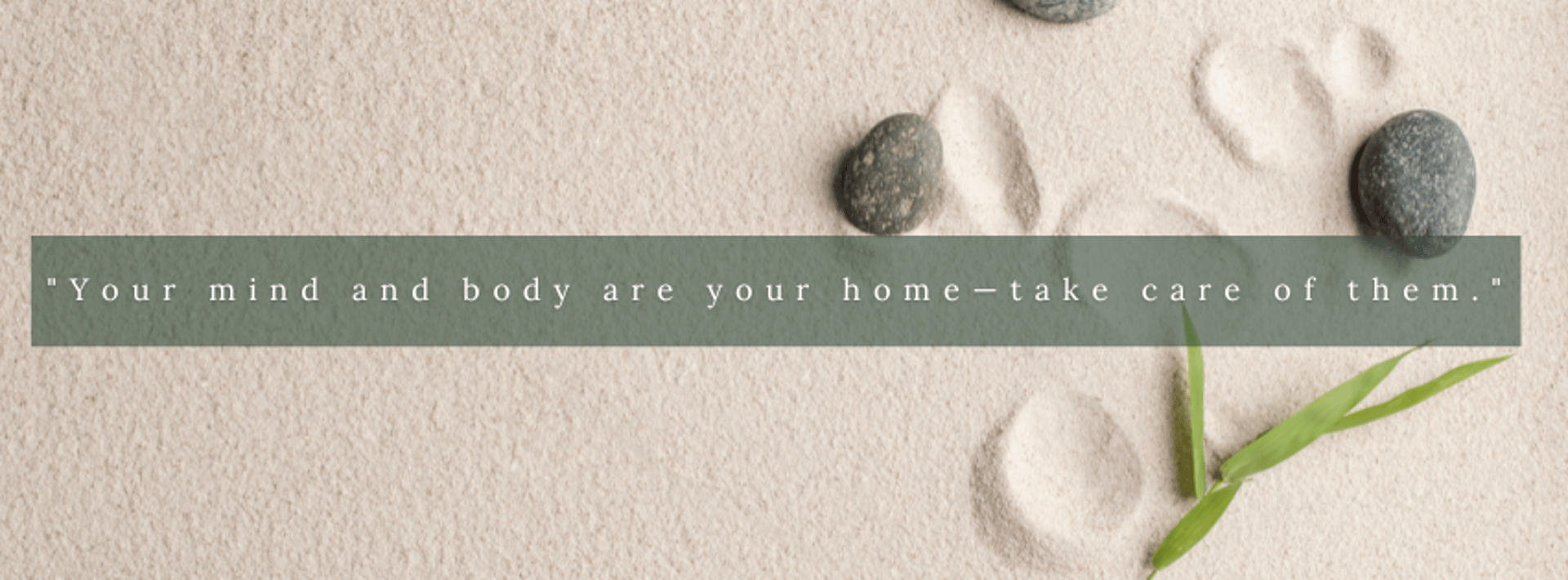How to Practice Self-Compassion When You're Feeling Low
Learn some simple and gentle ways to practice self-compassion when you're feeling low. This post shares supportive steps to help you nurture yourself, release guilt, and find emotional healing with kindness.
SELF CARE BLOG
8/8/20252 min read


Sometimes life just feels heavy – motivation is low, emotions are running high, or things just aren’t going as planned. In moments like these, it’s easy to turn inward with criticism, guilt, or shame. But maybe instead of judging ourselves, we offer ourselves the same kindness and compassion we would a loved one? This is where self-compassion comes in - a powerful, healing practice that can help you feel seen, heard, supported, and strong during tough times.
Here are some ways to practice self-compassion when you're feeling low…even when it feels hard.
Pause and Acknowledge How You Feel - The first step in self-compassion is noticing your feelings without trying to fix them right away. Think about your emotions. What are they? Sadness, frustration, loneliness, or anxiety?
Try saying this:
"This is a tough moment. I am feeling overwhelmed, and that’s okay."
Recognizing what you are feeling allows you to move through it rather than avoiding it or trying to suppress it.
Speak to Yourself Like a Friend - Think about how you would respond to a loved one going through the same thing. Would you say, "You should be over this by now," or "You’re not strong enough." No, you probably wouldn’t, so why say it to yourself? You’d probably say, "It’s okay to feel this way. You’re doing the best you can." So, remember these words for yourself too.
Practice using that same loving tone with yourself. Write down or say out loud a few kind, gentle phrases like:
"I’m allowed to feel what I’m feeling."
"I’m human, and I’m doing my best."
"This will pass, and I’m not alone."
Let Go of the Pressure to "Be Okay" - When you're low, you don’t have to have it all together. Allow yourself space to simply be. That might mean canceling plans, pausing on responsibilities, or just sitting in silence for a little while. Permitting yourself to slow down is a form of deep compassion.
It’s okay to:
Cry.
Rest.
Not have all the answers.
Healing doesn’t have a schedule, and you don’t need to prove your strength to anyone…including yourself.
Engage in Gentle Self-Care - Self-compassion isn’t about bubble baths and chocolate (although those are great, too) - it’s about asking, "What do I truly need right now?"
Maybe it’s:
A short walk outside
Turning off your phone
Drinking water or having a nourishing meal
Journaling your thoughts
Listening to calming music
Choose one simple act of care that feels doable.
Remind Yourself That You Are Not Alone - One of the most painful parts of low moments is the feeling of isolation. But you are not alone; everyone experiences emotional pain, doubt, and disappointment. You are not broken, you are human.
Try this mantra:
"Others feel this way too. I am not alone. I am part of a shared human experience."
This simple reminder can soften the sting of loneliness and reconnect you to the truth that we all struggle sometimes, and that’s okay.
Replace Judgment with Curiosity - Instead of asking, "What’s wrong with me?" try asking, "What are my feelings trying to tell me?"
Our emotions are messengers, not enemies. Being curious about our emotions rather than critical opens the door to self-understanding and healing.
Final Thoughts
Feeling low doesn’t mean you’re failing. It simply means you’re alive, human, and growing. Practicing self-compassion is not about ignoring pain…it’s about giving ourselves grace.
Next time you find yourself in a low place, remember: You deserve kindness, especially from yourself.
You are worthy. You are enough. You are loved.
Much Love,
Radiance Retreat

